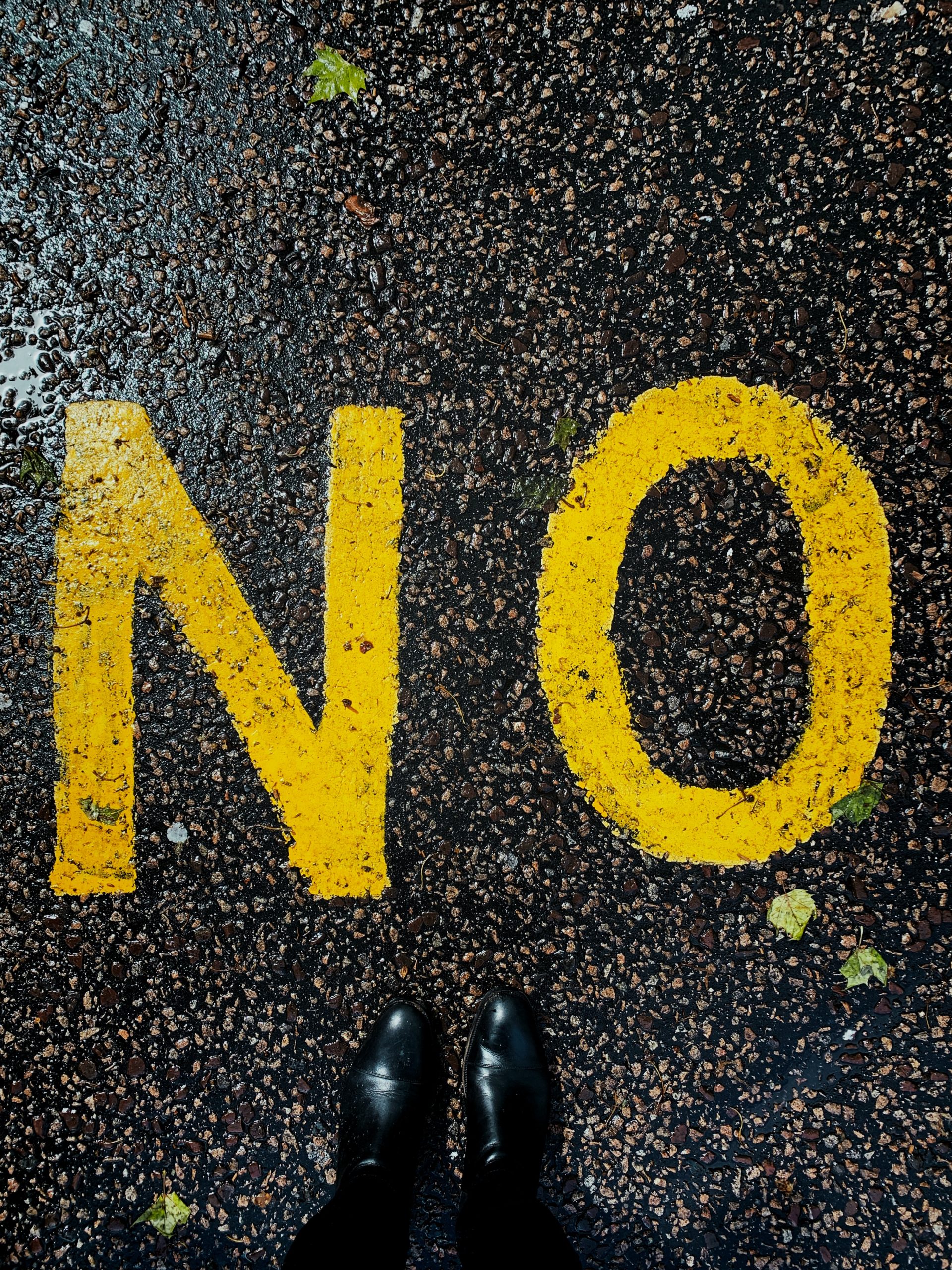How to Say No
Sounds simple enough? Right? And yet…
We love saying no. “Would you like to try our new…” “No.” “Can I get your number?” “Nope.” “Do you want to go to the gym together?” “No thanks.” Why is “No” so damn empowering? “No” is a powerful, dare we say more so than saying “yes,” because it not only forces introspection but also, guts and guile.
Women are conditioned from a young age to be agreeable, amicable, and everything in between to make sure feelings don’t get hurt, situations don’t get uncomfortable and opportunities aren’t lost. This conditioning doesn’t always apply to men, who grow up in a parallel world where demanding things they want isn’t seen as anything other than strength. This disposition makes us vulnerable; we say yes more often than not, in the sweet name of grace. Even when everything inside us is screaming no, we find ourselves nodding our head and curtsying our way dizzily through life. At work, while dating, to strangers, to friends, it all becomes a haze of pleasing other people’s expectations and losing ourselves in the process. Saying no isn’t denying someone, it’s granting yourself permission and power to be in control of your life.
Power Tip 1: Set boundaries with the people around you by building confidence in yourself
Shouldn’t saying yes prove that we are strong? That we can endure and adapt endlessly? Isn’t that what power is? Well, think about all those times you agreed to a favor for a friend even while you felt overwhelmed and overworked. Didn’t you resent that person, or even yourself, for not being able to find a balance that felt comfortable? If the friendship is completely dependent on you saying yes to the favor, even if you aren’t happy, is that even a friendship or are you being used? We all have endured times where our generosity was taken advantage of and that’s when “No,” becomes the sword in the stone. Oprah Winfrey, on Dear Sugar Radio with Cheryl Strayed and Steve Almond, describes this exact problem when sharing how she finally was able to say no to family members who only used her for money. “The threshold to freedom…[being] able to step away and stop being defined and stifled by other people’s definition of who you should be, and being able to own that for yourself,” set her free. She stopped tuning in to their demands and began asking herself “What do I want?”. No comments, questions, or concerns after.
Power Tip 2: Understand the difference between what you want and what is expected of you.
Drama. I know. But sometimes, that’s literally what it comes to. Oprah shared that she was in pain and constantly felt hurt by their actions. It diminished her self esteem and the relationships she had with them. It was a relief to start setting boundaries. A relief to start saying no. The solution here is intention. Everything should come from your intention. Not someone else’s. What do you want to do? How much can you handle? Where do you want to invest your time, love, and energy?
Even in the workplace, saying yes doesn’t equate to more recognition or promotion. We are expected to work harder than our male counterparts and are repeatedly set aside when it comes time for accolades. We rarely get what we deserve. Why do women hold only 7.4% of Fortune 500 CEO roles? According to a NY Times article, “Why Women Aren’t CEOs; According to Women Who Almost Were,” one reason is that we are not comfortable with being selective because we are just not encouraged to be assertive or competitive the way men are. We lose faith in ourselves when we don’t see a clear line between our labor and its fruits. And why would we? That line does not exist! We need to etch that line ourselves with stone-cold confidence. Sallie Krawcheck, CEO of ELLEVEST and the producer and host of MAKERS Money, explains why in an Elle magazine interview. “When men say no, it’s ok when women say no, there’s backlash. We’re all socialized to believe moms are helpful and dad is watching football. If you want that perception to change it’s up to women, and those that support women, to call it out.”
Power Tip 3: Build communities that support you.
A survey (by Pepsi and Pure Leaf) of 2600 men and women found that half of women surveyed said they have a hard time saying no in the office. 85% of women agreed that saying yes to too much hurts their quality of life and 86% felt that being allowed to say no to more would be liberating. What is going on?? Why aren’t we speaking up more? Why do we continue to strangle ourselves in yes’s when it’s clearly hurting us? In the professional world, saying no can be strategic and allow you to focus more on projects that can help you excel. Yet, you risk severing certain relationships. Going out on a limb and enforcing your boundaries is terrifying and that’s why it’s so important to find other women who understand the feeling of being stifled and learn to be there for one another in these spaces and beyond.
Saying no means standing up for what you deserve and what you believe in and that’s a war that demands allies for victory. We aren’t just resisting other people’s expectations when we say no, we are rebelling against a systemic issue. The more we assert ourselves in unison, the more change we can affect, the more confidence we have in our choices and goals.
So, let’s say no. Let’s say it with our chest. No questions, comments, or concerns.
We know what’s underneath matters to you. At our core, we are a women’s empowerment company that stands for strong values and principles. Ten percent of every order of our comfortable, body-celebrating seamless underwear, bralettes, shapewear, and masks fund Microfinance loans for female entrepreneurs around the world. That’s also why all seamless products on our site are made at manufacturing plants under the Women’s Empowerment Principles developed by the United Nations. That means your panties are made ethically: no sweatshops, and no fast fashion. Learn more about our mission and our products.




